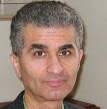A similar idea was alluded to in the novel “Hard to be a god” by Arkadi and Boris Strugatskii in which Earthmen from the Institute for Experimental History had been intervening in the history of other planets with disastrous consequences.
Both of these ideas are now in the process of being realized.
Consider:
A quantitative theory of physical and cultural co-evolution was first pioneered in “Genes, Mind, And Culture: The Co-evolutionary Process” by Charles J. Lumsden and Edward O. Wilson but they did not really delve into the process of history or the behavior of individuals. [A remarkable work nevertheless that was ignored for the most part.]
The task of modeling of the histories of a number of pre-industrial societies (such as dynastic China) was accomplished by Peter Turchin in the book “Historical Dynamics: Why States Rise and Fall” using ordinary differential equation. [He does not model the individuals as autonomous agents.] In his chapter on Meta-ethnic Frontier Theory he uses the following set of coupled differential equations:
Here A stands for the area of the state (ethnic group) and S stands for Ibn Khaldun’s old concept of “assabiya”; i.e. tribal solidarity and cohesion among a group of human beings. Turchin’s models reach quantitative agreements with historical data - surely making Ibn Khaldun proud!
On the other hand, a quantitative framework for the modeling of the individual agents was proposed by Michail Zak in 3 papers: “Dynamics of Intelligent Systems” and “Self-supervised Dynamical Systems” and “Physics of Life From First Principles”. The essential idea of Zak is the incorporation of the idea of “Self-Image” into stochastic non-linear set of differential equations that describe the behavior of a single individual (of an specific species). Zak models the behavior of an individual agent by using Newton’s Second Law but with an additional random force – attributable to the agents intelligence.
The reason for the random force is that if you observe animals without knowing that they have minds – and only knowing f=ma – you will be obliged to account for their behavior of changing direction and speed by invoking (invisible) random forces acting on them. And he postulate that this random force (which is modeling the agents autonomous intelligence) obeys the Liouville Equation. And in this manner he can account for emergent randomness.
Therefore, one can model, in principle, a society of humans by writing a simulation that keeps track of thousands or millions of such agents interacting and evolving – like codes that people write for modeling of galaxies [see the book “Gravitational N-body Simulations: Tools and Algorithms” by Sverre J. Aarseth].
Note that both Turchin and Zak approaches admit the possibility of chaotic solutions with no discernible patterns - something not too uncommon in actual human history.
Something that would be interesting to investigate is the relationship of Zak’s particulate approach to that of Turchin and others like him. For we know that the Navier-Stokes equations may be derived as various moments of the Boltzmann’s Equation. Can Turchin’s equations be similarly derived from the moments of a suitably chosen set of dynamical equations such as those proposed by Zak? Who knows, perhaps we could then settle the debate between “historical inevitability” and “The Role of Individual in History”?
A possible bridge between the two approaches may be found in the work of David Wolpert and his team at NASA’s Ames Research Center . His approach is based on giving goals to individual agents that would naturally optimize the collective. Wolpert is not interested in history, he is interested in engineering design optimization but his approach provides the glue between the two approaches discussed above.
One would think that a synthetic model that combined the gross approaches of Lumsden, Wilson, and Turchin, on the one side, and the individual agent approaches of Zak and Wolpert, on the other, would be an even more robust and powerful model to account for some features of human history. So there could, someday, exist an “Institute of Theoretical History” - welcome to “Noon: 22 Century”!



No comments:
Post a Comment